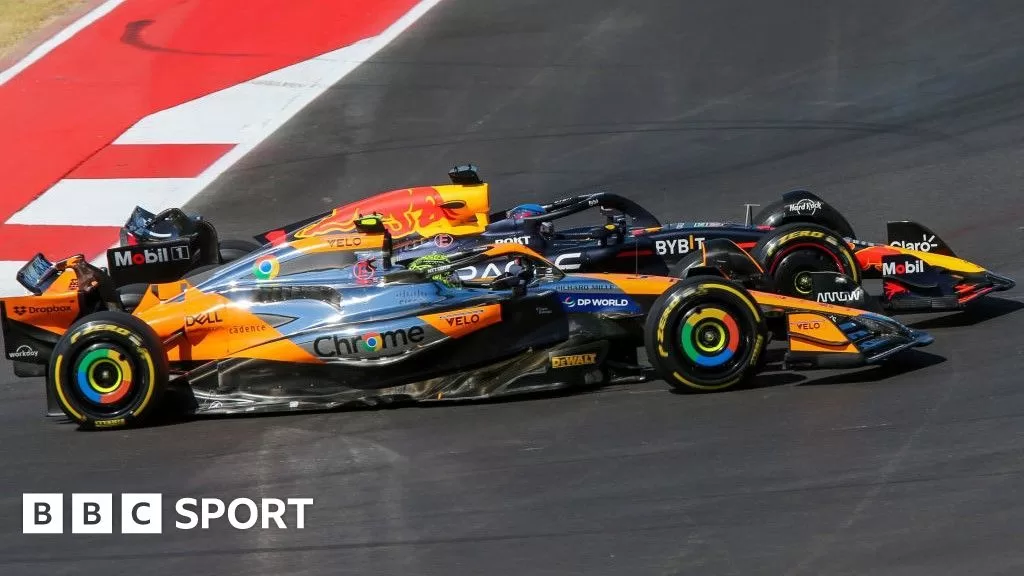McLaren argued in the hearing that Norris was in fact the defending driver because he had already overtaken Verstappen on the straight before the two cars braked for the corner in question, Turn 12 at the Circuit of the Americas in Austin, Texas.
If that argument was accepted different sections of the overtaking guidelines would have applied, notably that Verstappen would have committed an offence by forcing Norris off the track.
But the stewards ruled that McLaren’s assertion was “unsustainable” because “the concept that the [stewards’ decision] was the significant and relevant new element, or that an error in the decision was a new element, is not sustainable and is, therefore rejected”.
McLaren said in a statement: “We disagree with the interpretation that an FIA document, which makes a competitor aware of an objective, measurable and provable error in the decision made by the stewards, cannot be an admissible ‘element’ which meets all four criteria.”
The decision means Verstappen keeps the 57-point lead he holds over Norris heading into this weekend’s Mexico City Grand Prix, with five races to go and 146 points still available.
The incident between Norris and Verstappen has led to significant debate in F1, with many drivers feeling that Verstappen, while complying with the letter of the rules, was breaching racing ethics.
Seven-time champion Lewis Hamilton said on Thursday: “You shouldn’t be able to come off the brakes and run more speed in and go off the track and still hold your place.”
Hamilton’s comment summed up a widespread view in F1 that Verstappen’s default defence in such situations should not be allowed.
The three-time world champion has on a number of occasions employed a tactic whereby he releases the brake sufficiently to comply with the rule requiring him to be ahead of the apex but then runs wide off track, taking his rival with him.
